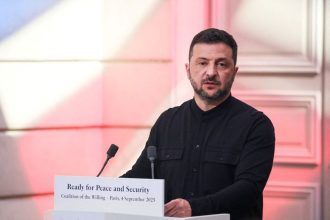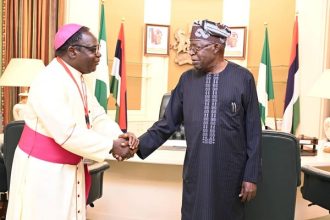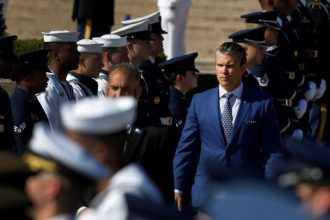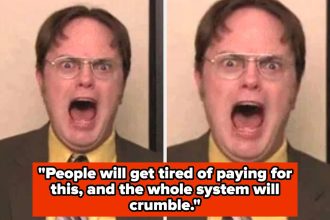HALIFAX — Republican lawmaker Sen. Thom Tillis of North Carolina says it’s all good and well that Canada is finally meeting its NATO defense spending commitments, but Canada should make up for two decades of back dues — to the tune of $300 billion.
“Can we do a makeup payment for the 20 years of shortfalls as well?” Tillis told a Saturday panel at the Halifax International Security Forum, a international gathering of defense officials and security professionals.
“It’s fine to say you’re about to catch up, but it’s not fun to look past a $300 billion shortfall,” he said.
Tillis is one the eight members of a bipartisan congressional delegation to this weekend’s security conference. Attendees were keen to hear their views on the trade tensions between Canada and the U.S., especially given that President Donald Trump has banned Washington’s top defense officials from attending this weekend’s conference.
Canadian Defense Minister David McGuinty opened the proceedings Friday, highlighting Canada’s commitment to reach NATO’s 2 percent GDP by the end of this fiscal year and the alliance’s new 2035 target of 5 percent. Those are increases driven by Trump’s grievance that allies in Europe and Canada were not paying their fair share and riding on U.S. coattails.
McGuinty reflected pointedly on Canada’s several decades of declining defense spending that started after the end of the Cold War and only ended this year with the new commitment to meet NATO targets.
“When national budgets were tight, other priorities took precedence — and if I’m being honest — we became complacent. Our defense muscles atrophied. Our security muscles atrophied. Call it the peace dividend, or the end of history. We now know this era was short-lived,” the minister said.
But he added: “We are rebuilding, rearming and reinvesting in the Canadian Armed Forces on a massive scale and at speed. We’re making generational investments into our security, our sovereignty and our resilience.
Asked about Tillis’ comments, McGuinty said Saturday that Canada is focused on the future and rebuilding its military at “breakneck speed.”
“We’re hiring 15,000 soldiers. We’re rebuilding 33 bases. We’re moving on. We’ve got hundreds of aircraft on order. We’ve got destroyers being built,” McGuinty said.
“I think that I get his position. We respect it, but we’re moving forward.”
Canada’s new spending commitment was made earlier this year by the new government of Prime Minister Mark Carney, which was elected in April. Carney succeeded Justin Trudeau, who stepped down earlier in the year after a decade in power.
Tillis recalled meeting Trudeau in Washington and pressing him on what was then Canada’s unfulfilled NATO commitment.
“I said, ‘Mr. Trudeau, I’ve looked back over the last 20 years, and every prime minister has said the same thing, we’re going to get to it. And they never got to it. As a result, there’s a $300 billion shortfall in our mutual defense,’” Tillis recalled.
Tillis criticized successive Liberal and Conservative governments for balking at raising defense spending because of concerns over not short-changing Canada’s social safety net, which includes public health care.
Tillis’s co-panelists did not express the same criticism.
Independent Sen. Angus King (Maine) said Trump’s imposition of tariffs on Canada, which includes 50 percent levies on steel and aluminum, have “no justification and are splitting neighbors.”
“The deeper problem is the cultural break, the idea that Canadians now don’t think of Americans as their friends and their neighbors, but as an adversary,” King added.









